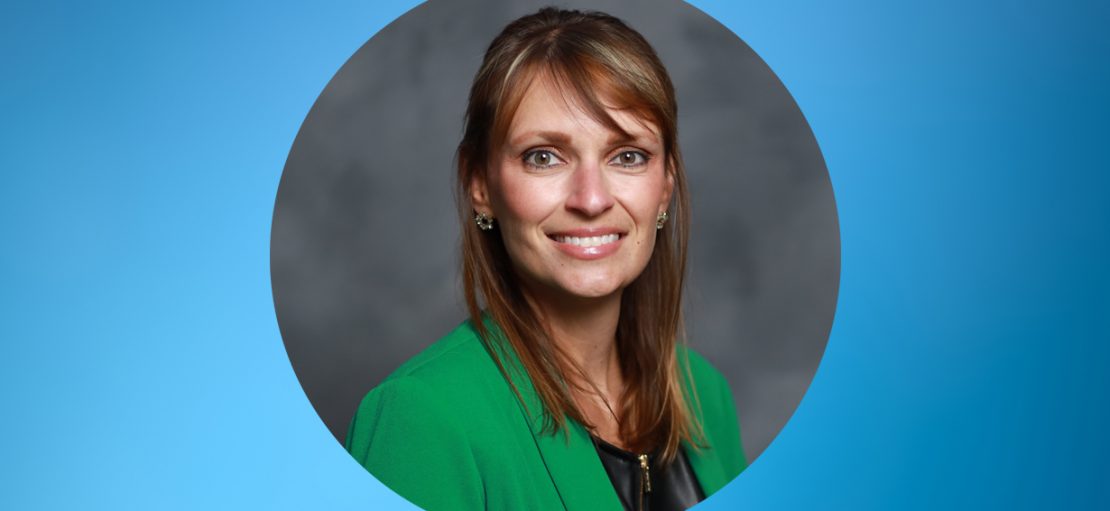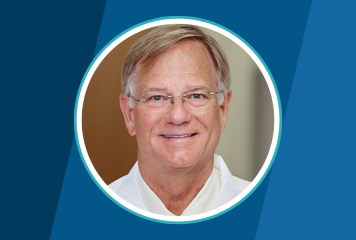Ecler Jaqua, MD, MBA, FAAFP, AGSF, FACLM, DipABOM, AAHIVS, is an Associate Professor of Family and Geriatric Medicine and the Associate Program Director of the Loma Linda University Family Medicine Residency. She holds certifications by the American Board of Family Medicine (a member board of the American Board of Medical Specialties), the American Board of Geriatric Medicine, Lifestyle Medicine, Obesity Medicine and the American Academy of HIV Medicine, and is a Fellow of the American College of Lifestyle Medicine, the American Geriatric Society and the American Academy of Family Physicians. She joined the ABIM Geriatric Medicine LKA Approval Committee in July 2024 after serving on the Geriatric Medicine Item-Writing Task Force for two years.
What was your journey to medicine and the specialties you chose to work in?
I was born in Brazil and I always wanted to be a doctor. When I was younger, I loved going to hospitals and when I saw the doctor, that’s what I wanted to be. Now I have other reasons: it’s cheesy but it’s true, I want to be there to help and make a difference in someone’s life.
Where I wanted to do my residency in Brazil, they required proficiency in English, so I came to the U.S. to learn English and be more proficient. But I met my husband at church and ended up staying. I did my family medicine residency at Loma Linda. Being a family doctor is very broad, which is good—you see the patient as a baby and as they grow older, you have that connection with the patient and their family, which are likely your patients, too. I like the long-term relationships. But because it’s so broad I felt the necessity of doing something more specialized. So, after residency, I went to a geriatric fellowship at UCLA, and my goal was to come back as core faculty, which I did.
Why geriatrics? To me if you know how to take care of older patients, you can take care of everybody else. I wanted that extra challenge of knowing how to treat the most complex and challenging patients so everything else would be easier by comparison. I also wanted to spend more time with patients, not just a 15- or 20-minute visit, but something more comprehensive.
Loma Linda is one of the pioneers of lifestyle medicine. One of my colleagues was sitting for the board exam, and I decided to join them. I love to learn and inspire others to be the best versions of themselves. If I want to learn more about a specific topic, I write an article. I take advantage of every opportunity to study and become proficient. So why not take a board exam? When I certified in HIV, my residents were doing it, and I wanted to join them and lead by example.
Which specialty do you feel most at home in?
Family medicine is still the one I do the most, and it goes side by side with geriatrics, but I’m also doing a lot of research on lifestyle medicine. Lifestyle is foundational to everything I do, and I try to integrate it into every aspect of my work. Lifestyle medicine is the cornerstone of medicine in general. It applies to every specialty by addressing the root causes of health issues through six key pillars: nutrition, physical activity, sleep, stress management, substance use and social connections. By focusing on these pillars, many chronic diseases can be prevented, leading to improved physical and mental health outcomes. Through lifestyle medicine, we tackle the underlying factors contributing to various conditions, ensuring a comprehensive and preventive approach to healthcare.
What was your experience serving as an item-writer?
I really, really enjoyed it. It was such a fun environment and very nice to hear from my colleagues. Every time I worked on a question, it was an intellectual challenge for me to read more about that topic, so it was very good for my own learning. I enjoyed the collaboration, giving and listening to constructive feedback, and I became better at writing questions over time.
Why do you think it is important to stay current with medical knowledge? How does ongoing certification and assessment factor into that?
I think it’s super important. Once you graduate, you might think you don’t need to learn anymore. We take our board exam every ten years, but I like the continuity of longitudinal learning better because medicine is rapidly changing and evolving. Our patients might even know about a novel treatment that we are not yet aware of if they look something up before seeing us. They ask questions that they see on social media. It’s so important to validate your competency and make sure you know the latest guidelines—it’s accountability.
What made you interested in serving on the LKA Approval Committee? What are you hoping to contribute in your new role?
This opportunity came up when I was an item-writer and I thought to myself, I want to further expand my knowledge. Now, I’m moving to the other side of the process, where I’ll be approving those questions. This allows me to continue learning by reviewing and researching questions while ensuring high standards of medical knowledge and practice. The goal is not to make the questions difficult but to accurately assess their knowledge, ensuring the quality and rigor of the examination process. This work is essential and contributes to maintaining excellence in medical education.



